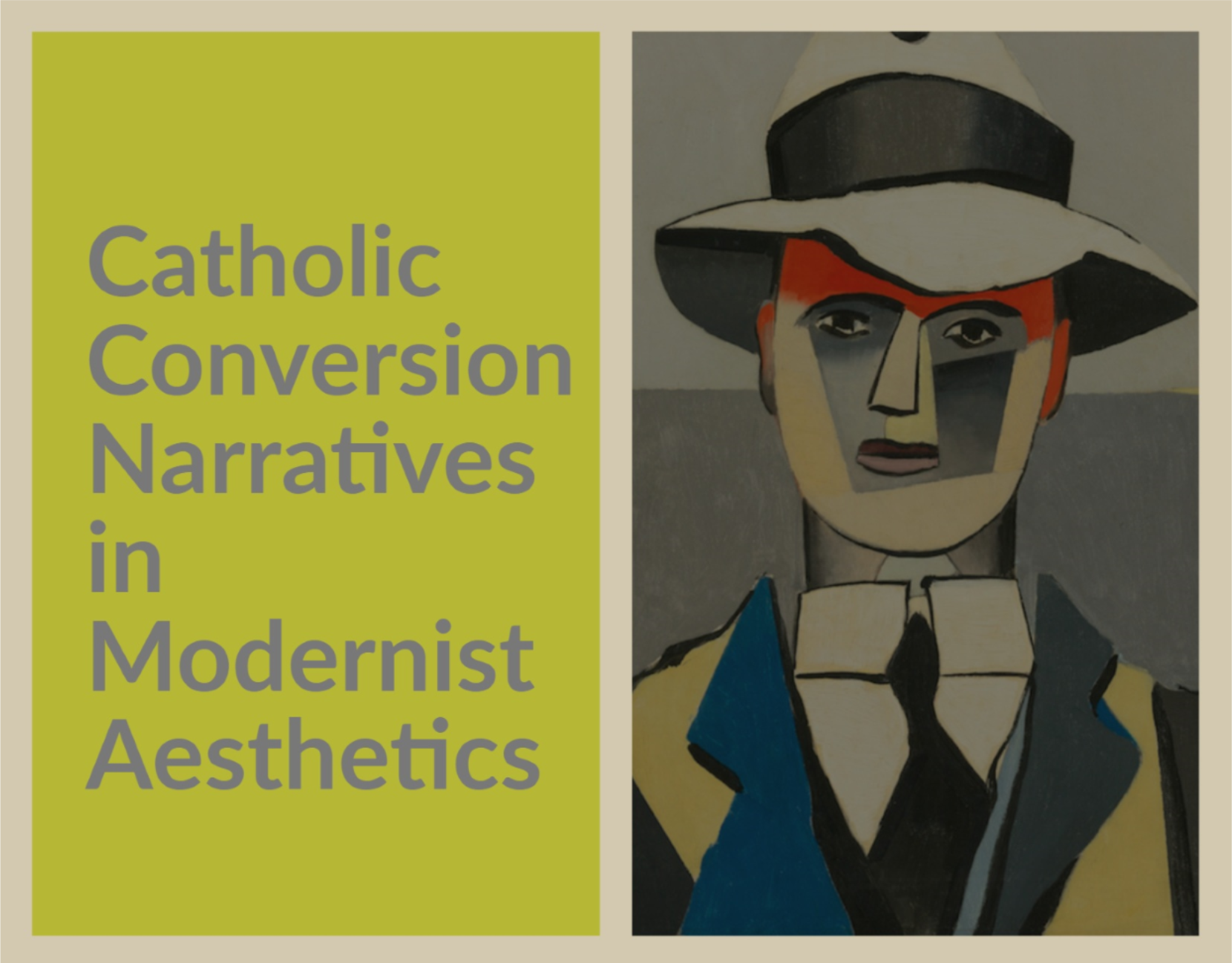archive
Catholic Conversion Narratives in Modern Aesthetics

Monday, April 16, 2018, 2-5:45 PM
& Tuesday, April 17, 2018, 10:00 AM-5:00 PM
Regents Hall, Lewis Towers
Loyola University Chicago, Water Tower Campus
111 E. Pearson St.
Chicago, IL 60611
This event was free and open to the public.
In collaboration with the Catholic University of Leuven (KU Leuven), the Hank Center was pleased to host this international and interdisciplinary conference. It explored a variety of modern conversion narratives, especially investigating language and other modes of expression that seek to make the spiritual event of conversion accessible outside of religious discourses.
Conference Outline
From Augustine’s Confessions to contemporary interviews with ISIS-fighters, the issue of religious conversion remains an important source for our assumptions about faith and belief, change and renewal.
This conference, Catholic Conversion Narratives in Modernist Aesthetics, focused on some of the specific narratives that have been developed to bring to expression the moment of conversion. While they cannot be wholly separated from the internal, emotional or psychological processes that have led to the moment of conversion, these narratives are to be considered its effect rather than its underlying cause. While in Augustine’s Confessions, for instance, the issue of conversion was still made dependent on a very intimate memoria dei, most modern conversion narratives develop a vocabulary and language that seeks to make the spiritual event of conversion accessible to others. At this conference, we zoomed in on the conceptual fabric that was put into motion in this process of expression and communication. It revolves around the possibility that a deeply private affair can be translated into an intellectually enriched and layered conceptual framework.
The point of focus of the conference was the question of to what degree these modern conversion narratives borrow concepts from contexts of meaning that were not of an initial religious nature. The conference revolved around the possibility that a conversion narrative need not necessarily take recourse to traditional beliefs and conceptual tools from the past. In establishing the link between modern conversion narratives on the one hand and modernist aesthetics on the other, the conversion narrative was explored as a surprising element of modernization.
Conference Schedule
April 16
2-2:15 PM: Welcome and Introduction
2:15-3:15 PM: Session 1 Colby Dickinson (Loyola University Chicago)
3:15-3:30 PM: Coffee Break
3:30-4:30 PM: Session 2 Stéphane Symons (KU Leuven): The Filmmaker: The Case of Robert Bresson
Robert Bresson is surely one of the best-known art house filmmakers of the twentieth century. Having developed his own theory of acting and filmmaking, Bresson modernized the medium of cinema by claiming that it could not bear a direct expression of emotions. This has led to ways of acting that are seemingly mechanic and spiritless. However, in interviews and writings, Bresson highlights the connection between, on the one hand, this “cold” and indifferent manner of acting, and Pascal’s conceptualization of religious belief and spirituality. Bresson’s ideals and beliefs were of Catholic nature, but his argument was that only a mechanical use of the camera and an emotionless manner of acting would manage to capture the essence of a religious experience.
April 17
10-11 AM: Session 4: Samuel O’Conner Perks (KU Leuven): The Art-Collector: The Case of the De Menils
The De Menils immigrated from France to the US, where they made a fortune in the oil business in Texas. This case study analyzes the conversion narrative of Dominique De Menil, outlining, firs of all, how it was influenced by the ideas of Marie-Alain Couturier and Yves Congar and, secondly, how it evolved into the intellectual source for her practice as a collector and curator. The De Menils sought ways to reconcile these Catholic beliefs with a modernizing, American society, and used these beliefs as inspiration for their museum and school.
11-11:15 AM: Coffee Break
11:15-12:15 PM: Session 5: Ryan Dohoney (Northwestern University) TBC
12:15–2 PM: Lunch Break
2-3 PM: Session 6: Rajesh Heynickx (KU Leuven) The Art-Critic: The Case of Michel Seuphor
An art-critic and influential artist in his own right, Seuphor belongs to the most well-known and respected philosophers of art in Belgium. Deeply interest in modern art, and its propensity to tap into a progressive and forward-looking dynamic, Seuphor was nonetheless a devoted Catholic. His conversion narrative put into play the very concepts that he used in his theoretical writings on aesthetics to understand the progress and modernization of modern art.
3-3:15 PM: Coffee Break
3:15-4:15 PM Concluding Remarks: Sarah Shortall (Notre Dame University)

